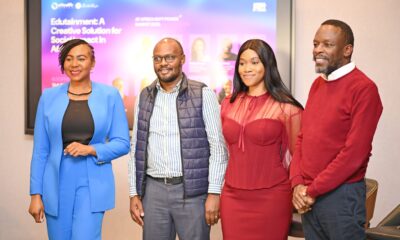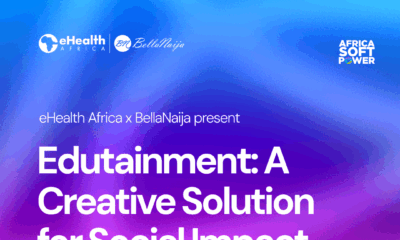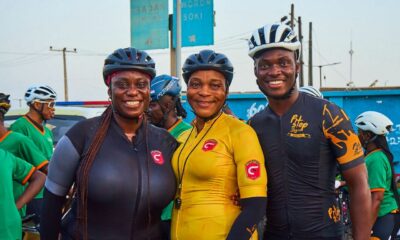Inspired
How Victor Ugo’s Mentally Aware is Offering Mental Health First Aid & Crisis Support for Africa’s Youth
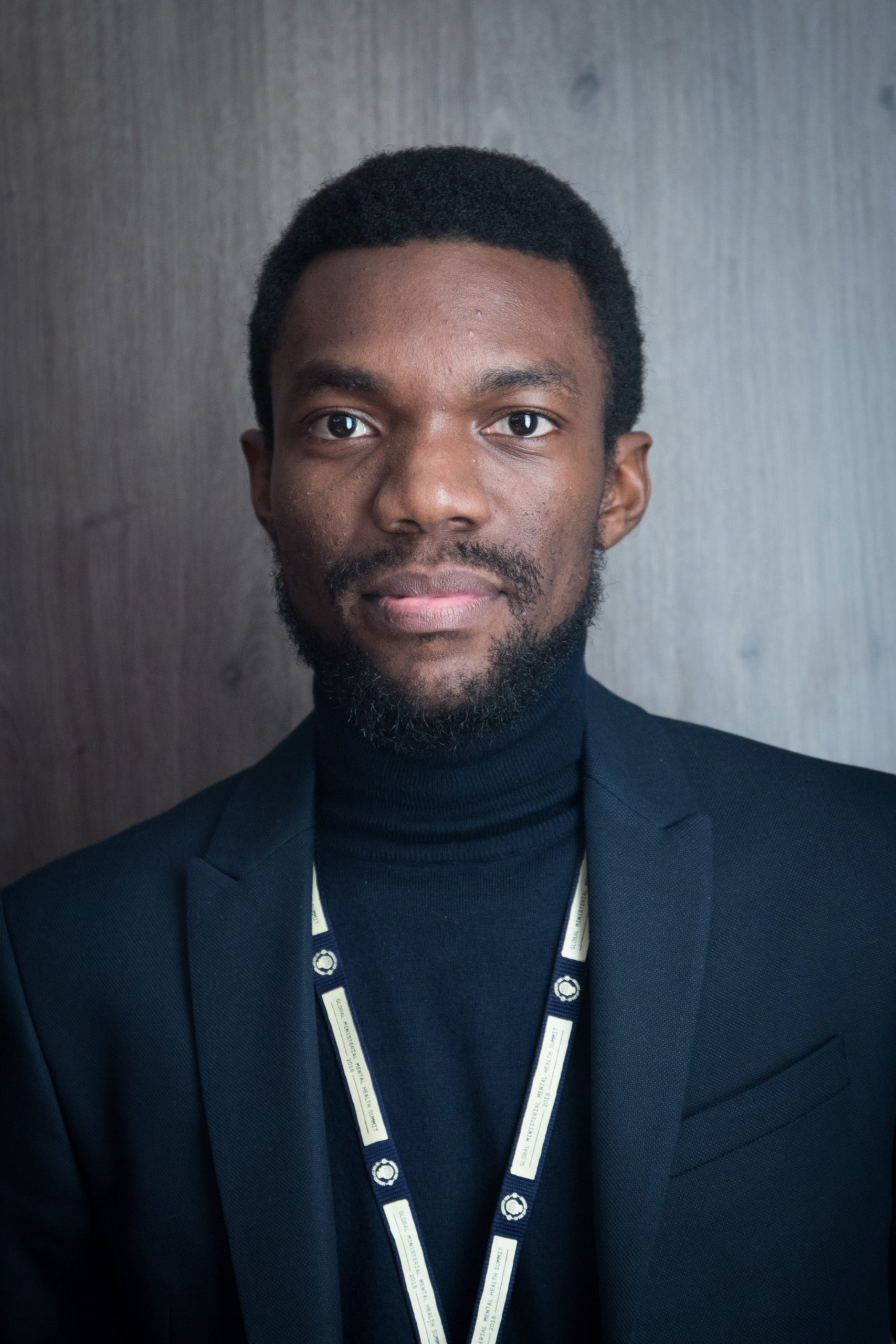
Victor Ugo, Founder, Mentally Aware Nigeria Initiative (MANI)
It’s been 5 years since Victor Ugo founded Mentally Aware Nigeria Initiative, a youth-led and youth-focused non governmental organisation passionate about ending the stigma and discrimination attached to mental health and related issues in Nigeria and the rest of Africa.
Today, the organisation has become a household name when it comes to mental healthcare and awareness in Nigeria and across Africa, especially among the youth population. Across social media and even conversations offline, Mentally Aware has become a go-to place when the need for mental health support is mentioned.
With over 130 million unique social media users reached every year, and more than 30,000 people who have received crisis support in the last four years, one would say MANI is indeed making an impact in the society today, especially in the lives of its target population.
Ugo, a medical doctor, was inspired to establish Mentally Aware Nigeria Initiative (MANI) after a personal experience – he was diagnosed with depression in 2014. One would have thought that as a doctor, the signs would have been clear to him, but they weren’t and that was a shocking realisation for him.
“That was when it dawned on me that there were so many people even and especially without the medical background who would find it even more difficult and almost impossible to recognise mental health difficulties in themselves and in their close relatives,” he told BellaNaija in an interview in 2018.
How MANI Works
What MANI does is offer what Victor calls mental health first aid and crisis support for people with mental health needs. Victor notes that most people who call their support lines, simply need someone to talk to and oftentimes after this, people feel better. But MANI doesn’t stop there, they also provide referral services so people can speak with qualified psychiatrists and psychologists if need be.
MANI serves as “that stranger that you can reach out to to talk about your mental health,” Victor says.
MANI’s interview process is quite strict, Victor says, “because we know that we’re dealing with people’s mental health.” Even after volunteers are recruited, they still undergo training and are supervised by experts. They undergo psycho-education, active listening, suicide counselling, safety training and refresher trainings monthly. They also have an outlet where they receive counselling from an expert on the team. So volunteers are not only adequately trained, they are also mentored.
Another good news for MANI is that 98.5% of the people they have provided crisis support to have said they’ll refer their services to their friends if need be.
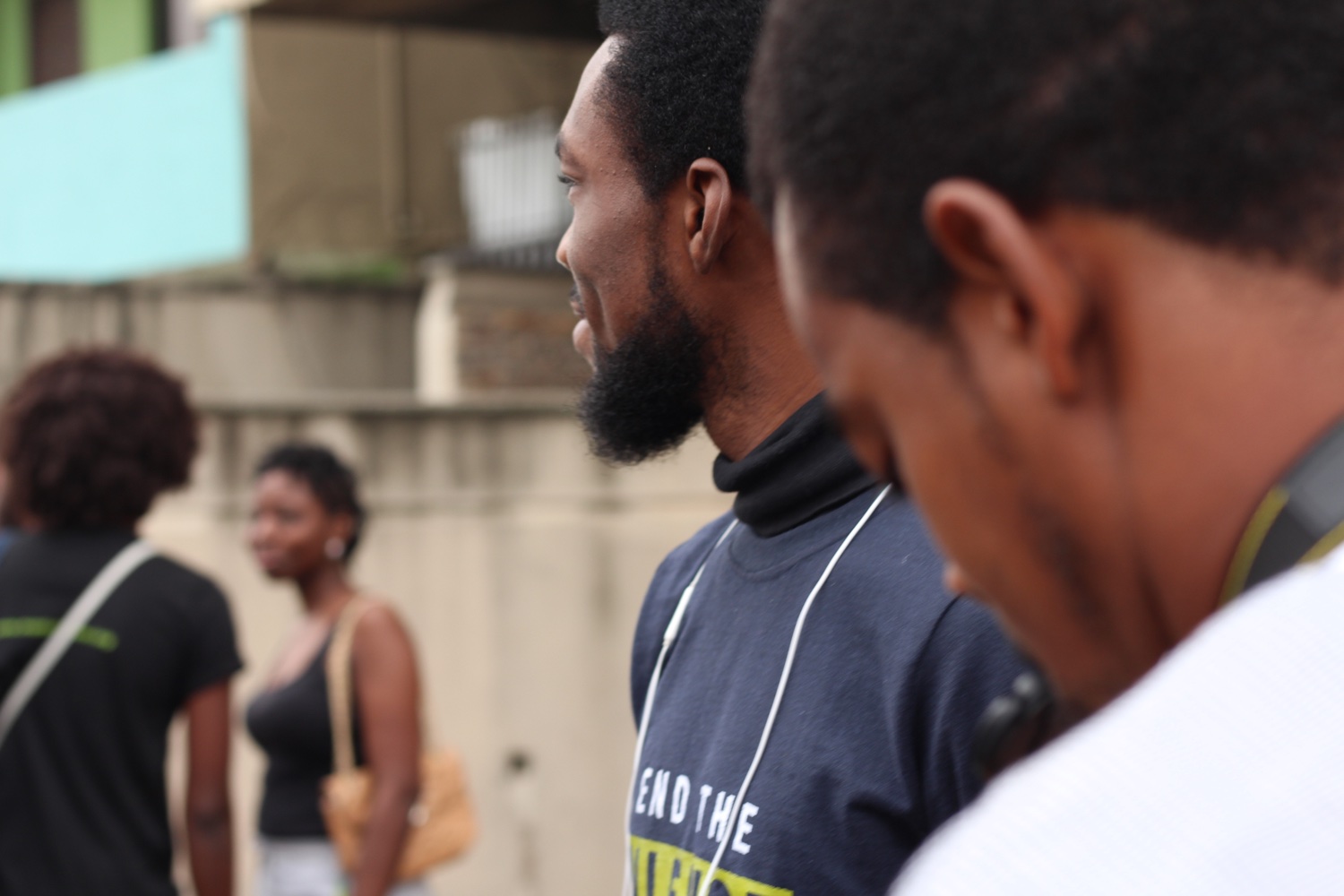
State of Mental Health in Nigeria
“Naturally, you’d want to go with the data, but we don’t have data. However, going by what we’re seeing on social media and communities across the country, it’s not in a very good place,” Victor says.
He adds: “And with constant exposure to traumatic situations in the past year, it’s definitely gotten worse and the pandemic has increased risk factors to mental illness. The pandemic, based on research from other countries, has led to an increase in predisposing factors to mental illness. And then in Nigeria, the End SARS protests have led to an increase in stress and anxiety.”
But this is not the only problem. There are only a couple hundred psychiatrists in Nigeria and this poses a major mental health challenge in the country. Apart from this challenge, Victor says, people do not know where or how to seek help when they encounter mental health challenges.
How Can this Problem Be Solved?
For MANI, part of their work is educating people on how to seek help and interact with doctors as well as how to identify one that’s good for them.
Secondly, MANI is involved in policy advocacy, Victor notes. The organisation is working hard to change Nigeria’s Lunacy Act from 1958, which gives medical practitioners and magistrates the power to detain an individual suffering from mental illness, as well as engage policy makers to see how more specialists can be changed.
“One thing that’s evident is that we can’t actually solve this problem in the next 10 years. We can’t have as many psychiatrists as we need,” Victor says, sharing a system that the World Health Organisation is implementing in some countries, one that can work in Nigeria, with something similar being piloted in a few states in the country.
It’s called the Mental Health GAP or mhGAP, a system where non mental health specialists are trained to care for people with mental health conditions. This is important because more than 85% of people with mental health conditions are not severe cases and those cases can be managed very well by these non-health specialists who are well trained. So if people appear early to care centres, they can be attended to.
For Nigeria, the current healthcare system is perfect for implementing the mhGAP in Nigeria. He says if healthcare workers in the Primary Healthcare Centres (located in all communities across Nigeria) are trained to attend to mental health conditions, it will reduce the burden on psychiatrists who are majorly found in Tertiary Healthcare Centres (Teaching Hospitals and Federal Medical Centres). He notes that some cases that are not acute but more severe than mild, can be referred to Secondary Healthcare Centres (General Hospitals) who have doctors who are general practitioners but not specialists.
This has been piloted in Cross River, Benue and Enugu states, says Victor and Lagos has also trained community health centres in managing postpartum depression. “So it works and we need to nationalise this,” Victor says.
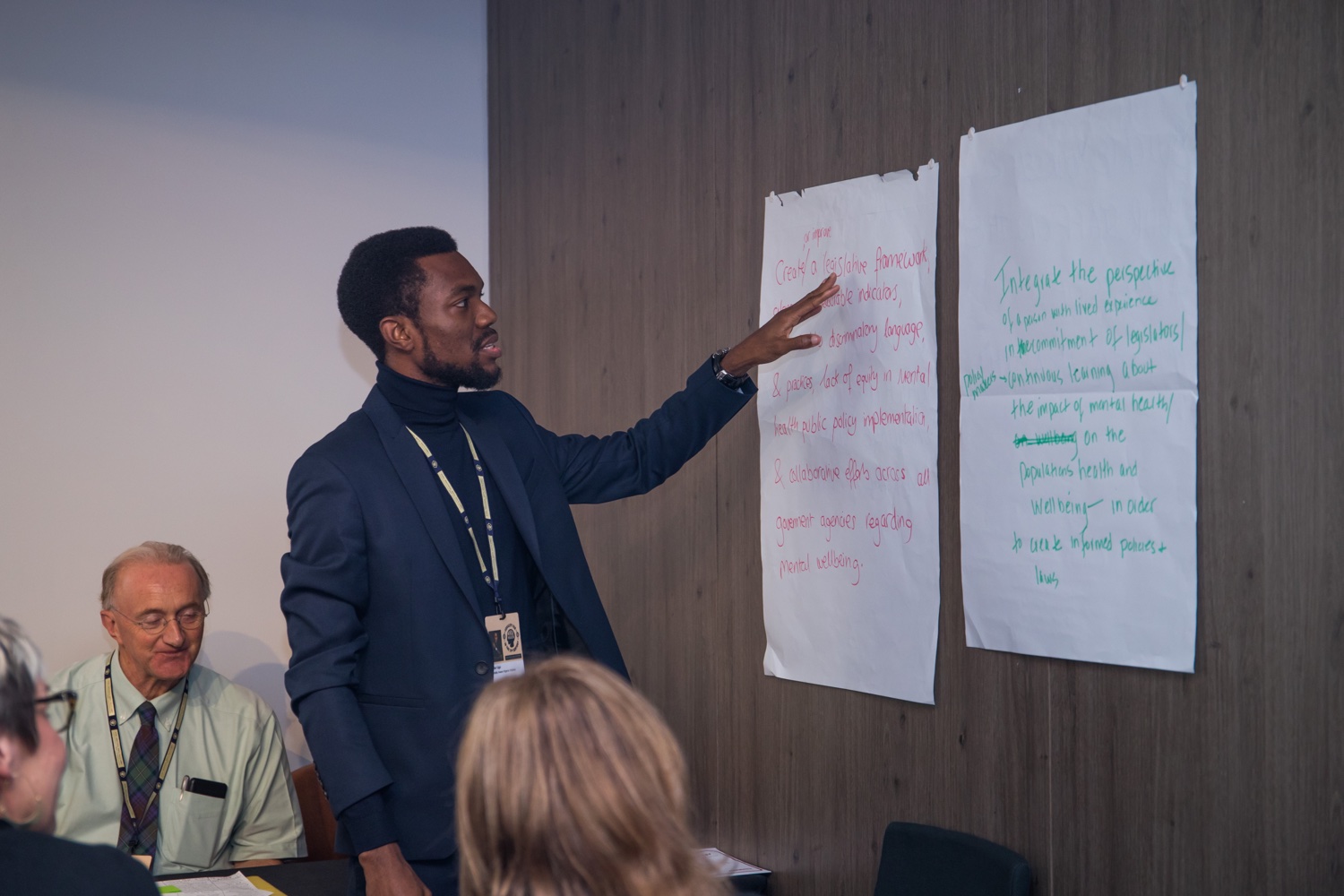
What are Some of the Barriers to Mental Health?
According to Victor, there are barriers in:
- Knowledge: Lack of mental literacy
- Access: Most people do not know where or how to get mental healthcare
- Capacity: Lack of professionals who can actually provide mental healthcare and who have the right mindset. Victor shares that in Nigeria, it’s common for staff of mental healthcare centres to tell people with mental health challenges to go to religious houses for help.
- Resources: Inadequate resource persons with the know-how to provide a listening ear and mental health first aid.
- Language: This is a new area the world is exploring. How different communities define some words in mental health vocabulary and how it affects mental healthcare globally.
Reaching Out to People in Rural Areas
In Nigeria, majority of the population are located in rural areas with little or no internet penetration, MANI is still gathering resources on how best to reach out to them. “For now, MANI is meeting the needs of people where our resources can cater to and do not want to go unprepared to communities – which is also a form of neglect.” Victor says.
Also, MANI is working to provide its services in different languages so they can meet the mental health needs of people across Africa and the world. This is in addition to establishing partnerships across Africa as well as developing a platform where people can connect with counsellors across the continent.
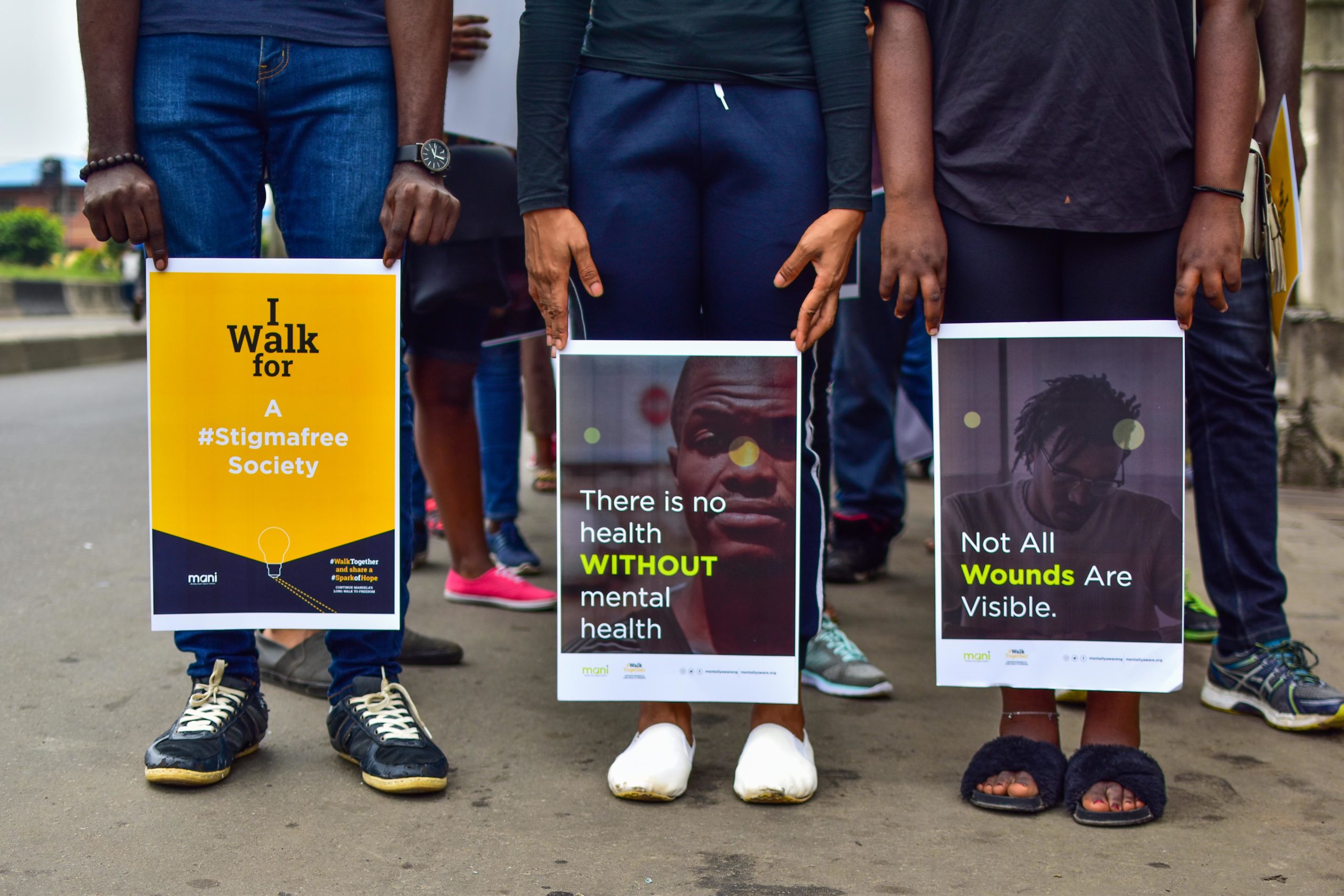
The Pandemic & Mental Health
Between March and May 2020, MANI recorded a more than 300% increase in the number of people reaching out to them. The number of visitors on their website also increased massively and what the team did was to set up a Stranger Support System where people sign up to be called randomly every month. A volunteer calls and just listens to the recipients and in less than a year, more than 2,000 people have benefited from the program.
The pandemic also took its toll on MANI’s volunteers because the organisation was receiving more than 4,000 cases a month. MANI’s partnerships with different organisations across the world came in handy at this time and counsellors received the needed support to continue their good work.
Mental Health Practices to Improve Mental Health
“I’ll not speak from an expert’s point of view, but from the view of someone who’s had a tough 2020/21,” Victor says, adding that he’ll share what works for him. While noting his privileges, he lets us in on things he does daily to improve his mental health:
- I take stock. I write down my thoughts and daily activities. I voice journal to make it easy.
- I have a gratitude pot where I note the good things that happen in my life. It can be a gratitude album (with pictures of where I go, food to eat, e.t.c)
- Have a therapist if you can. We are constantly being hit with reasons to be angry.
- I listen to music and meditate
- I maintain sleep hygiene. I put off the light, don’t go to bed before I’m sleepy and do not use my phone past a particular time.
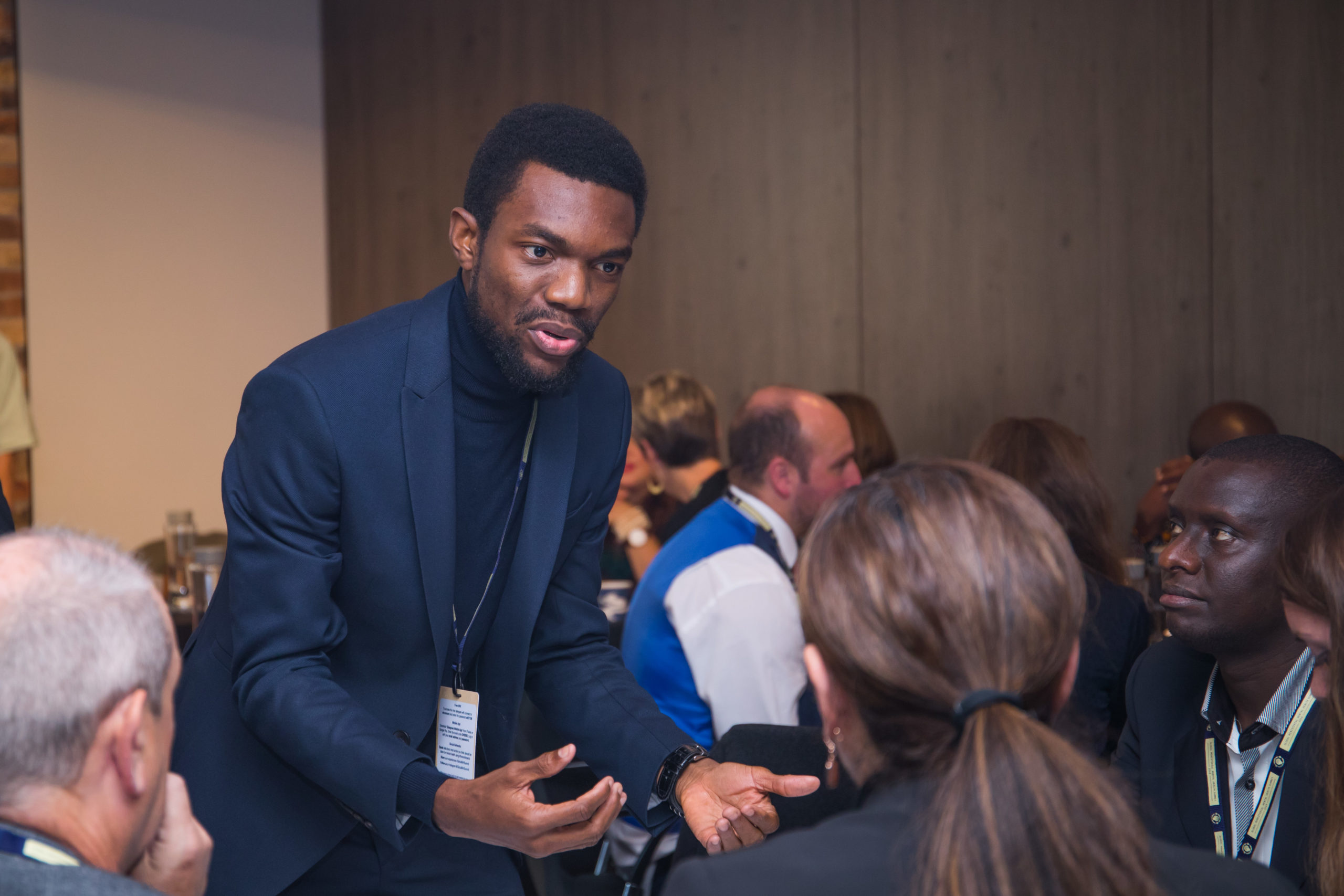
How Individuals Can Help Increase Mental Health Awareness in their Communities
Victor says: “It starts with us recognising that we don’t have to aim for the national or state level. It just starts with us doing the little we can within our families, street, workplace, e.t.c. The first part is assessing what you know and educating yourself, then move on to learning with (not educating) others and ensuring people around you are mentally aware.”
MANI’s Success Story
Apart from reaching about 130 million globally every year and providing crisis support to more than 30,000 people in four years, MANI has, between 2019 and 2020 reached more than 8,000 students and 3,000 teachers as part of its 6-month program in schools.
More than 15,000 students have also been directly impacted by MANI and over 5,000 people in workspaces have been impacted by MANI’s work.
MANI has provided more than six million minutes of counselling support for the 30,000 + people it has impacted, with each person getting an average of four to five sessions.
How Do You Reach Out to People Who Do Not Want Mental Help?
Victors says: “You can’t actually help anyone that doesn’t want help. Just wait (watchful waiting) and be kind in the way you encourage them to seek help. Sometimes it’s fine to let people deal with their mental health challenges because it helps to build resilience.”
**
IMPACTER by Global Citizen x BellaNaija is throwing the spotlight on Africans making an impact in their countries and beyond. From mitigating the effects of climate change, to providing mental care, building innovative solutions to COVID-19, fighting global poverty, and providing education for all, these impacters are building smart solutions to creating a world that is safe, healthy and equal for all.
As the world strives to recover from the impact of COVID-19, IMPACTER will follow the journey of these change-makers whose projects are not just changing the lives of people, but are also creating a world of equity and equality.


